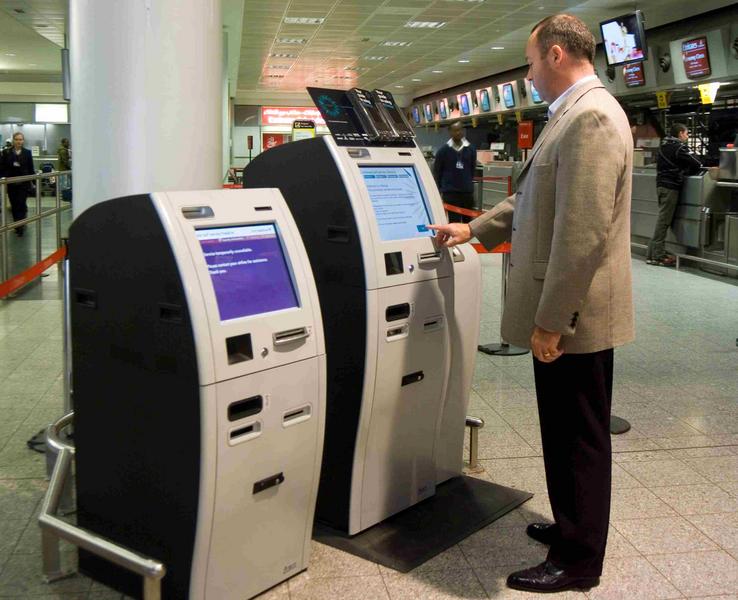Heathrow trials new biometric scheme
Fingerprinting and iris scanning to be used on Emirates and Cathay Pacific passengers in two month trial


A trial of a new biometric scanning system at Heathrow Airport's Terminal Three started today.
Dubbed MiSense, the pilot scheme, set to run until the end of January, will track passengers as they make their way through the airport and onto their plane.
Passengers travelling on Cathay Pacific and Emirates flights will scan their fingerprints and passport at the check-in. Passengers going through the system will bypass lengthy queues at security using the new system.
The second part of the trail, called MiSenseplus, is set to run in conjunction with the Home Office's Iris project which provides clearance through UK immigration control for certain categories of regular travellers using biometric technology. MiSenseplus, will scan passengers' finger and thumb prints as well as each eye and one facial image. Passengers using this part of the scheme will also be issued with a membership card to use when travelling.
Cyrille Bataller, biometric specialist at Accenture Technology Labs, part of Accenture, one of the companies behind the trial, said that 2,000 passengers were expected to use the system during the trial period. He said that a similar scheme in Dubai had an uptake of 400,000 passengers.
He said that with any biometric system it could not guarantee 100 per cent accuracy and the system would have an error rate of about 0.1 per cent which would include both false positives and false negatives within that margin of error. He added with the use of more biometrics this error rate would drop to 0.01 per cent.
Tony Douglas, chief executive officer of Heathrow Airport said that "technology will play a much bigger part in the way we will travel in the future".
Get the ITPro daily newsletter
Sign up today and you will receive a free copy of our Future Focus 2025 report - the leading guidance on AI, cybersecurity and other IT challenges as per 700+ senior executives
He said it was "highly probable" that all travellers would have to use biometrics in the future. Over 67.7 million passengers use the airport, which bills itself as the world's busiest international airport. "This will make quite a change to the way we travel," said Douglas.
Liam Byrne, minister for immigration at the Home Office said that the trial is "one piece of the puzzle" in the ID cards debate.
"It allows us to strengthen our borders so travellers with nothing to hide can get through quicker."
The minister, who began his career at Andersen Consulting (now Accenture), said the cards "will make it easier" for travellers and will "help people save time in travelling."
Rene Millman is a freelance writer and broadcaster who covers cybersecurity, AI, IoT, and the cloud. He also works as a contributing analyst at GigaOm and has previously worked as an analyst for Gartner covering the infrastructure market. He has made numerous television appearances to give his views and expertise on technology trends and companies that affect and shape our lives. You can follow Rene Millman on Twitter.
-
 Bigger salaries, more burnout: Is the CISO role in crisis?
Bigger salaries, more burnout: Is the CISO role in crisis?In-depth CISOs are more stressed than ever before – but why is this and what can be done?
By Kate O'Flaherty Published
-
 Cheap cyber crime kits can be bought on the dark web for less than $25
Cheap cyber crime kits can be bought on the dark web for less than $25News Research from NordVPN shows phishing kits are now widely available on the dark web and via messaging apps like Telegram, and are often selling for less than $25.
By Emma Woollacott Published